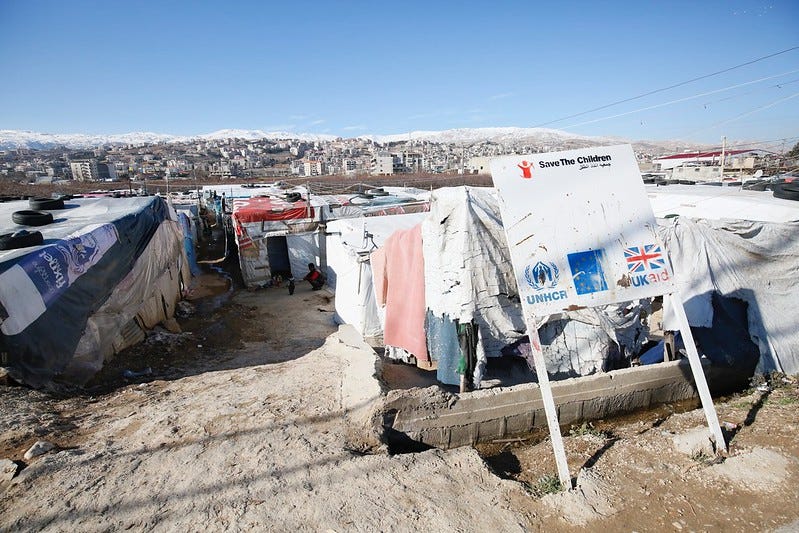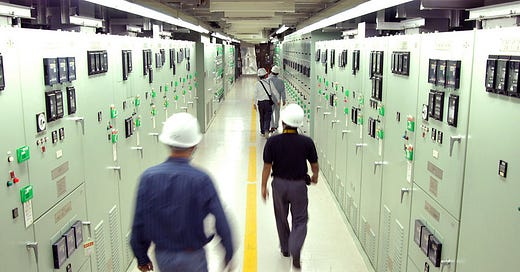Dear folks,
I’m sure that you remember this quote, as it was busy making the rounds in certain circles a little less than a year ago:

This phenomenon would explain why in the financial crisis of 2008, many countries seemed to double down on the recipes that had arguably led to the crisis in the first place (‘free’ markets and balanced government budgets) – because alternative economic theories were not lying around in places close to centres of power.
Theories, though, is perhaps not the right word. We’re not talking about formulas or hypotheses. Stories is a better word, because in public debate, theories about how, say, the economy works are inseparable from statements about who we (“the people”, “our nation”, our “neck of the global woods”) are and from normative claims about where we should go.
Today’s mini SLE is about the power of stories in shaping the national energy trajectories in the face of crisis.
In particular it’s about how Japan, the UK and Germany responded to the Fukushima nuclear meltdown.

I’m following Lukas Hermwille’s (2016) synthesis of the literature here. He writes that there was a strong pro-nuclear consensus in both Japan and the UK. In Japan, it was about energy self-sufficiency on an island with no fossil resources to speak of. In UK, it was that nuclear “should play a key role in taking Britain towards a clean prosperous future as it is a safe power and the lowest cost, large scale, low- carbon electricity source.” (241).
In Germany, however, two narratives competed: one stating “nuclear power is a potentially catastrophic threat that we cannot control”, while the other is basically a more timid version of the UK’s: ‘we need nuclear as a bridge to a fully renewable system’.
Then the unlikely combination of events led to the disaster at Fukushima.
In Japan, the shock was so intense, it managed to shake the foundation of the nuclear consensus, as public perception turned away from nuclear and the country set on a spectacular solar investment spree. (Still, nuclear elites are firmly entrenched and were much less shaken to their… cores.)
Shock waves from the disaster obviously also reached the UK, but they were far too weak to unsettle the consensus.
In Germany though, the waves tipped the balance in favour of the story of nuclear reactors as an “uncontrollable threat”. As you’ll undoubtedly know, Merkel subsequently vowed to take the country’s reactors offline in an accelerated time-frame.
In Friedman’s terms, Germany had ideas lying around when the crisis – in this case, the shock – hit.
Hermwille argues that the power of stories, in times of crisis, reside in the fact that swift action is needed, while knowledge is limited. Narratives offer guidance. They can only do so, though, if they line up closely enough with decision-makers’ existing repertoires of stories and knowledge. Hence the Great Recession instead of the Great Turnaround.
So, for all ye sustainability revolutionaries out there: keep institutionalizing your ideas! Come the next pandemic, your stories will be politically inevitable. 🎉
Fieldnotes from the fold
Today, I’m starting a new recurring segment, where I’ll be talking to some of you, dear readers! To kick it off, I have another example of how we need to change our (policy) story - in this case, of corruption - if we want to make any headway. Read my talk with Muzna al-Masri and Neil McCulloch who co-authored a very interesting report about the possibility of change in Lebanon’s ailing electricity sector.
Marten
So, tell me about this new report!
Neil
Well, our research is part of a program at SOAS University of London that’s been exploring why anti-corruption interventions around the world have often failed. And their idea was that they fail because they have this sort of cookie cutter approach to anti-corruption. And what they've pointed out - and they've now accumulated a lot of evidence for this - is that you really have to understand the nature of the underlying political settlement in order to be able to tackle corruption in an effective way. And so they've done a set of studies of reforms in the electricity sector, in Bangladesh, in Nigeria, and also our own study in Lebanon, to see how progress is possible within different contexts.
Marten
What’s going on in Lebanon?
Muzna
Lebanon’s electricity problem goes back many decades. There are constant electricity cuts in the city of Beirut, at minimum three hours, and up to 12 to 14 hours a day outside of the capital. As a result, there are a lot of private generators that are covering the gap but also causing a lot of air pollution and forcing most residents to pay huge electricity bills. And then you have what appears to be a bright example of one company in Zahle, which is in the Bekaa Valley, managing to generate 24-hour electricity with excellent collection rates. So it has captured a lot of people's imagination. How can they do it?

Marten
Well, how can they?
Neil
So, one of the fundamental problems with electricity supply across Lebanon has always been that the price per kilowatt hour is way, way below the cost of supplying electricity. More than half of all of Lebanon's enormous debt is actually a consequence of the national utility’s deficit, the Electricité du Liban (EDL).
Now, Electricité de Zahle (EDZ) also buys its electricity from EDL, reselling it to customers at the EDL rate. However, they also add power from their own generators whenever the EDL electricity is cut. The customer just gets one bill, but in fact, they are paying 5-6 times the EDL rate for the locally generated electricity. However, because of the low EDL price, the total bill comes to about the same as if people had combined EDL with local generators.
This lack of transparency – the opposite of the usual anti-corruption recipe – allowed EDZ to make a significant profit, which they could then plough back into the quality of service and also into reaching agreements with the people who might oppose them. In that sense, EDZ succeeded in part because of the failure of the Lebanese state. And it succeeded in part at the expense of the Lebanese state – by not paying the EDL its full due.
Muzna
In a country that has that amount of corruption, it seems there is no way to come up with an arrangement that improves the quality of service for people without making concessions. So calling it anti–corruption would be a stretch, as you have to kind of pay something to the people who are responsible for the bad quality of service to start with.
Alright, that was a bit of cliffhanger! Soon, I’ll upload my full interview with the pair. We also talked about possible replication, private vs public utility, the prospect for renewables in ossified national utilities, as well as electric citizenship!
Follow the newsletter on Twitter to get the announcement, or wait till next edition to get the link 👌.
In the meanwhile, you can read the full report (also co-authored by Ali Ahmad and Marc Ayoub) here.
Till next time,
Marten
PS Want to contribute a story? Drop me a line!


